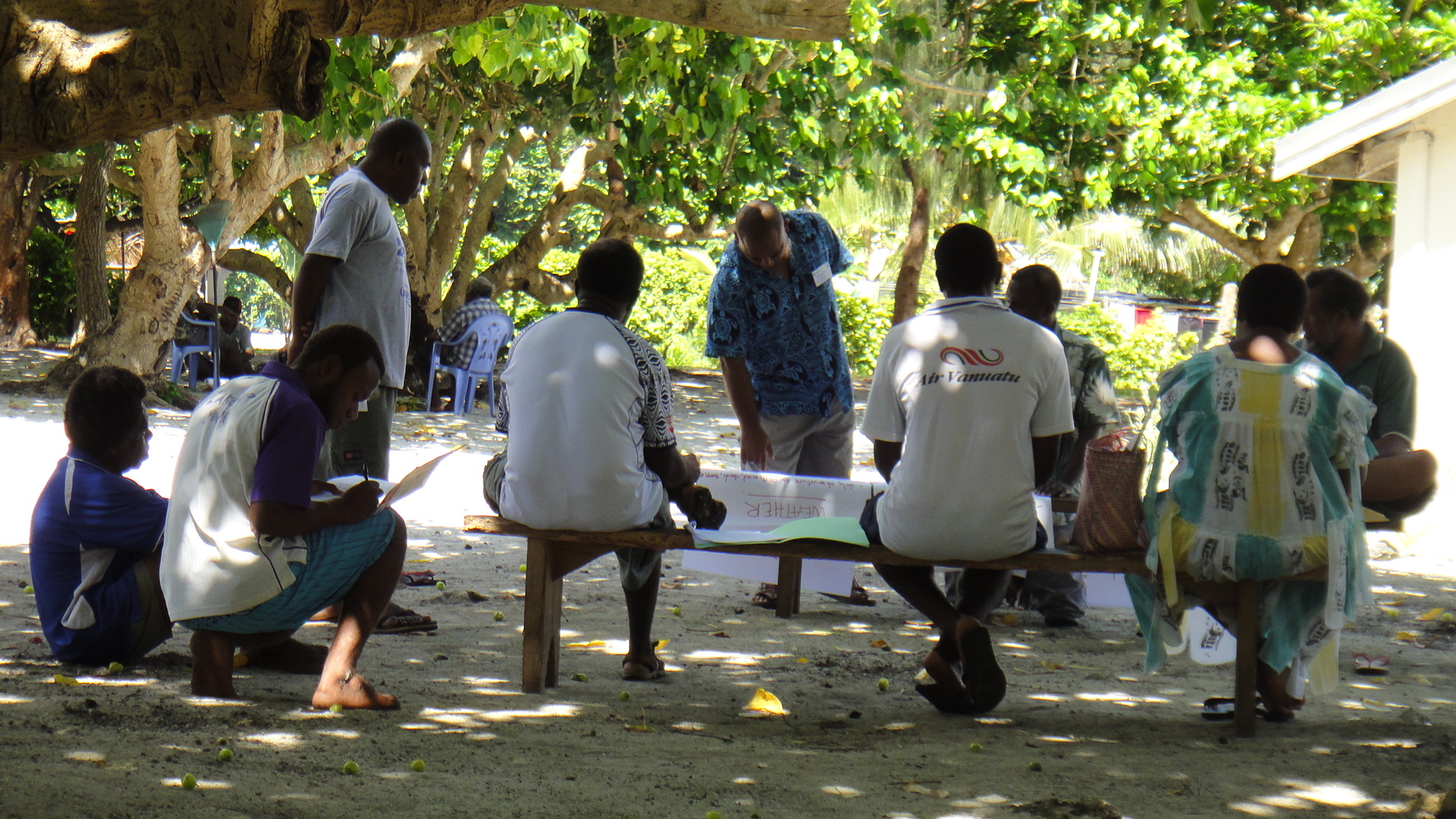Traditional Knowledge
By closely observing their local environment, communities in the Pacific have developed skills that enable them to build coping strategies for extreme weather and climate events. They are able to make their own predictions for weather and climate variables based on traditional knowledge that has evolved through observation and experience over a considerable period of time.
The project was developed in response to increasing concerns that traditional knowledge of weather and climate in the Pacific was rapidly disappearing, with the potential to reduce community resilience to extreme climate events.
What is Weather and Climate Traditional Knowledge?
Traditional knowledge (TK) is defined here as the knowledge held by those living on the land, be they indigenous or non-indigenous peoples. Our definition acknowledges that this knowledge is not static and can continually evolve over time and that it is often imbedded in practice and belief.
People can make forecasts and predictions about the weather and climate by observing the behaviour of:
- Plants
- Animals
- Astronomical indicators (e.g. sun and moon), and
- Meteorological variables (e.g. direction and strength of winds).
For example, the abundant flowering of the mango tree has been used to predict tropical storms.
Figure 1: Staff from the Vanuatu Met Services collecting weather and climate Traditional Knowledge (TK) from members of the community. (Photo: Lynda Chambers).
Traditional Knowledge Project Objectives
The project was set up for 3 reasons:
- To preserve traditional knowledge: Weather and climate knowledge is in danger of becoming lost due to growing western influences (cultural homogenisation), land-use changes and the impact of climate change – a concern shared by community elders and Pacific National Meteorological Services.
- To encourage communities to use NMS forecasts as well as traditional forecasts to increase their own resilience to extreme events: Some remote, rural areas may not routinely use “official” warnings from the national meteorological services (NMSs) because they are either difficult to obtain, are not understood and/or are not fully accepted by the community. In these communities there is a strong reliance on traditional methods of weather and climate forecasting, and the NMS forecasts may not be utilised fully, if at all, potentially leaving the communities vulnerable to extreme events, particularly as land-use and climate change have the potential to impact on the reliability of TK forecasts.
- To increase the level of trust between the NMS and the community: NMSs were concerned that there may be a lack of trust or understanding of the NMS forecasts. The TK Project is a way for the NMS to acknowledge traditional ways of forecasting and demonstrate their interest in preserving this knowledge for future generations. In addition, it was anticipated that communication between the NMS and the community could be enhanced by incorporating local (traditional) knowledge into climate discussions and forecasts.
